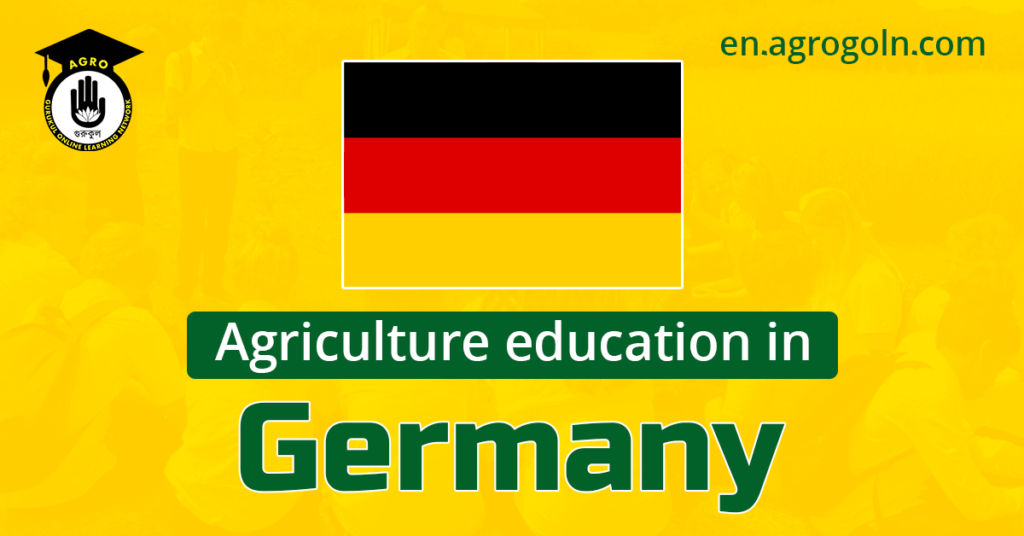Agricultural Education in Germany. Germany, with its long-standing tradition of agricultural excellence, has always recognized the importance of agricultural education in maintaining its competitive edge in the global market. Agricultural education in Germany is a comprehensive system that integrates traditional practices with the most recent scientific innovations, ensuring that its agricultural workforce is equipped with the necessary skills and knowledge to meet current and future challenges.
Agricultural Education in Germany
Historical Background
Agricultural practices have been an integral part of German culture and economy for centuries. With the agrarian revolution in the Middle Ages and subsequent improvements in farming techniques, there was a need to standardize and share this knowledge. Early forms of agricultural education in Germany can be traced back to monastic schools and local community gatherings where farmers exchanged knowledge and techniques.
In the 19th century, as the industrial revolution swept Europe, Germany established formal agricultural schools, laying the foundation for a modern agricultural education system that would serve as a model for many other nations.
Structure of Agricultural Education
Agricultural education in Germany is well-structured and spans various levels:
- Primary and Secondary Levels: German students are introduced to basic agricultural concepts in their regular school curriculum. This early exposure ensures that every citizen has a basic understanding of the country’s agricultural system and its importance.
- Vocational Training: After completing their basic schooling, individuals who wish to pursue a career in agriculture can enter vocational training programs. These programs, often in the form of apprenticeships, allow students to learn practical skills while working alongside experienced professionals.
- Universities and Technical Institutes: For those seeking advanced knowledge in agriculture, Germany boasts some of the world’s leading agricultural universities and technical institutes. Institutions such as the University of Hohenheim and the Technical University of Munich offer specialized courses in various agricultural disciplines.
- Continuing Education: Recognizing the importance of staying updated with the latest techniques and innovations, Germany offers numerous continuing education programs for professionals in the agricultural sector.
Curriculum and Specializations
The curriculum in German agricultural institutions covers a broad spectrum of topics, ensuring a holistic understanding of the subject. Students are trained in various aspects of agriculture, including:
- Soil science and fertility
- Crop production and protection
- Livestock management and animal husbandry
- Agricultural economics and business management
- Sustainable farming and organic agriculture
- Agricultural engineering and mechanization
Additionally, as global challenges like climate change, food security, and biodiversity loss become more pressing, German agricultural education has been quick to integrate these topics into the curriculum.
Research and Innovation
German agricultural education isn’t confined to just classroom teachings. The country heavily invests in agricultural research. Universities and research institutes collaborate with industries to conduct cutting-edge research, ensuring that Germany remains at the forefront of agricultural innovation. This symbiotic relationship between research and education ensures that students are always exposed to the latest trends and technologies.
International Collaboration
Recognizing the global nature of many agricultural challenges, Germany actively promotes international collaboration in agricultural education. Many German universities have tie-ups with institutions around the world, facilitating student and faculty exchanges. These collaborations help in sharing knowledge, best practices, and innovations across borders.
Challenges and the Way Forward
While Germany’s agricultural education system is robust, it isn’t without its challenges:
- Modernization of Curriculum: With the rapid advancements in technology, there’s a constant need to update the curriculum to keep it relevant.
- Attracting Young Talent: The agricultural sector, often perceived as traditional and less lucrative, struggles to attract young talent. This calls for an image makeover, portraying agriculture as a dynamic field full of opportunities.
- Sustainability: With increasing environmental challenges, there’s a need to instill the values of sustainable farming practices among students.
Germany, with its systematic approach to agricultural education, continues to adapt and evolve, ensuring that it remains relevant and effective. The integration of research, hands-on training, and a focus on sustainability positions Germany’s agricultural education as a model for many other nations.
In conclusion, agricultural education in Germany is more than just imparting knowledge; it’s about preparing a new generation of farmers, researchers, and professionals equipped to face the challenges of a rapidly changing world. The blend of tradition and innovation, backed by rigorous research and international collaboration, makes Germany’s agricultural education truly exemplary.
See more:

